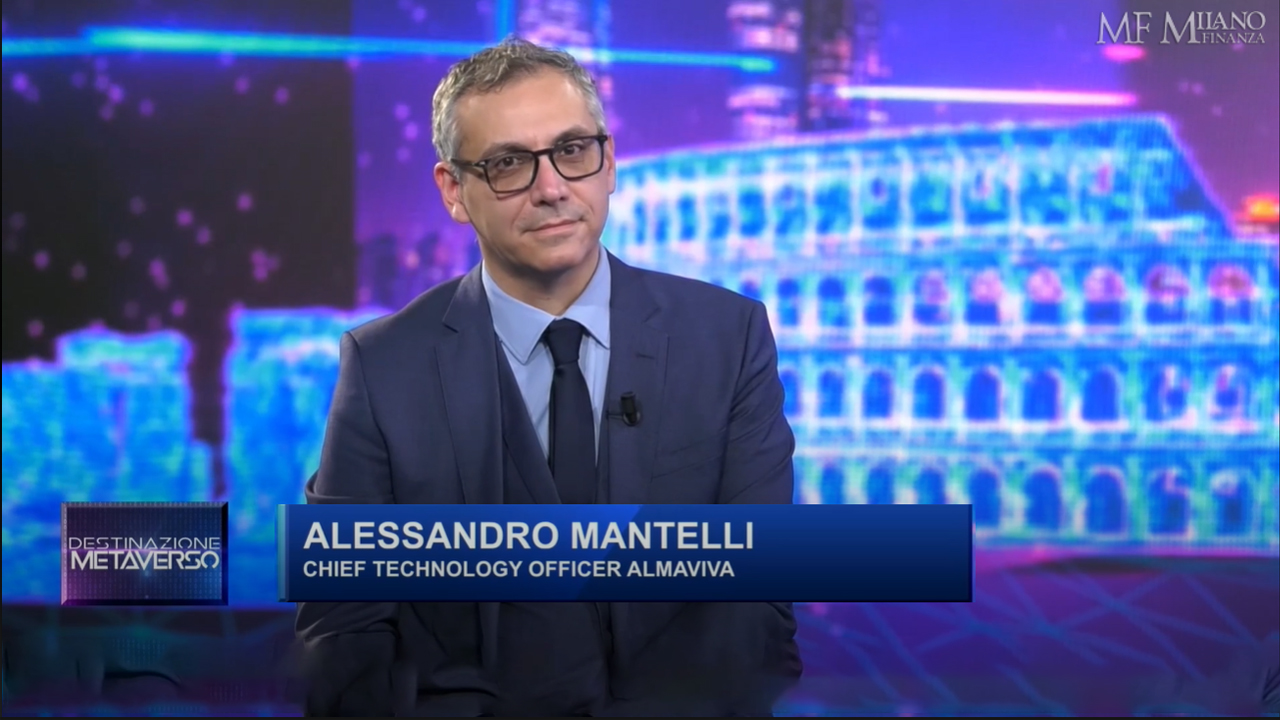
30-11-2022
“The metaverse is a set of virtual worlds in which to interact; an environment that represents the exchange between the physical and digital spheres. Almaviva is creating digital twins of stations, cities, buildings, and museums which are digitalized and managed using advanced technological systems that feature immersive, continuous, and real-time interaction and that make it possible to access data in order to find effective solutions and make decisions. A fundamental element of the metaverse is an economic environment that guarantees the concepts of identity and ownership of digital assets, as well as interoperability between different meta-worlds.
To better define it, the metaverse is a digital ecosystem that exists between the various meta-worlds which are connected by an interoperability made up of economic standards and models and in which the identity of the interlocutors is clear.”
Alessandro Mantelli, CTO of Almaviva, in an interview with Mariavittoria Zaglio for ClassCNBC, describes Almaviva’s vision of the metaverse in the episode of “Destination Metaverse” dedicated to value creation in the economy, particularly in the tourism industry.
An overview of the current situation, security and web3, and the upcoming developments in quantum computing.
“We need to be very familiar with these technologies, know how to integrate them and how to integrate the meta-worlds, making sure not to leave any holes in security. We at Almaviva are, on a daily basis, applying this fundamental work to complex systems ranging from transportation to public administration to defense.”
“Our approach is to build websites and ecosystems in which the various components collaborate in a coordinated and well-governed way according to a new model of scalable and secure interoperability. This is only possible if we make sure to properly orchestrate and integrate emerging technologies with existing systems.”
And in conclusion, some well-documented examples: Campania’s experience with digitalizing its cultural heritage.


